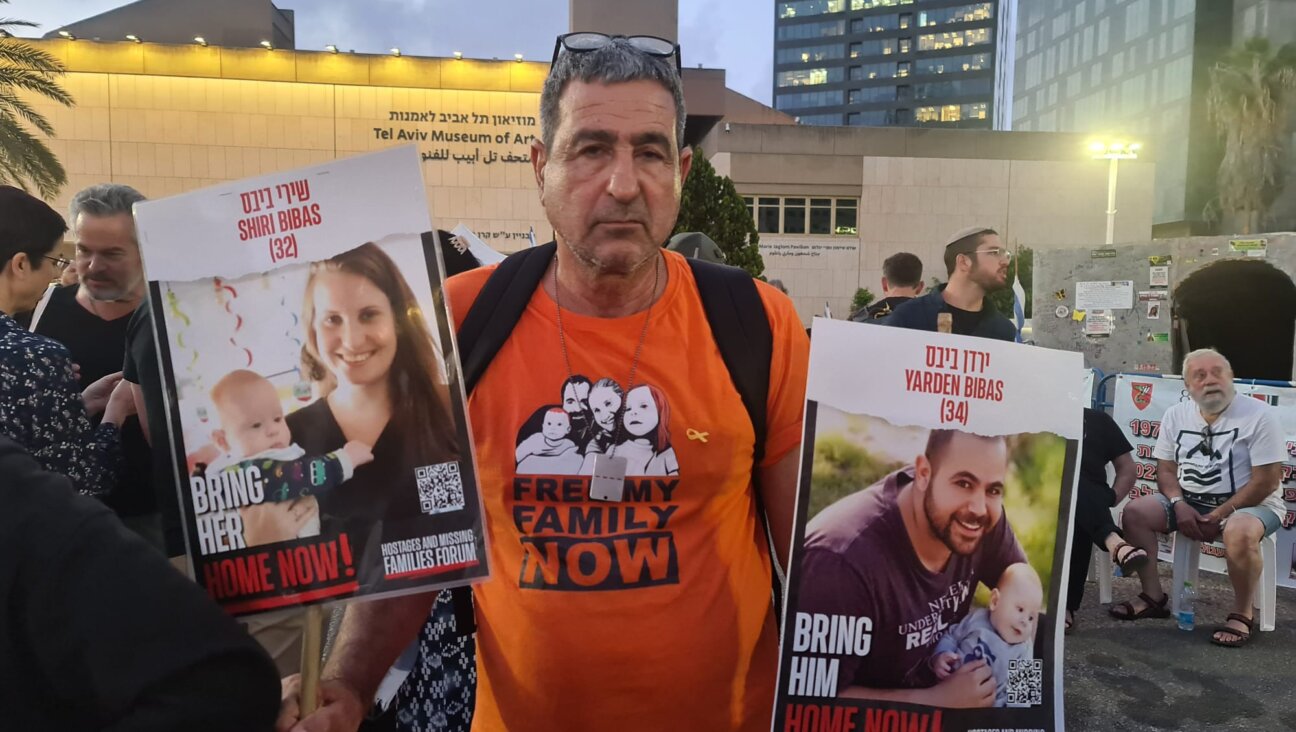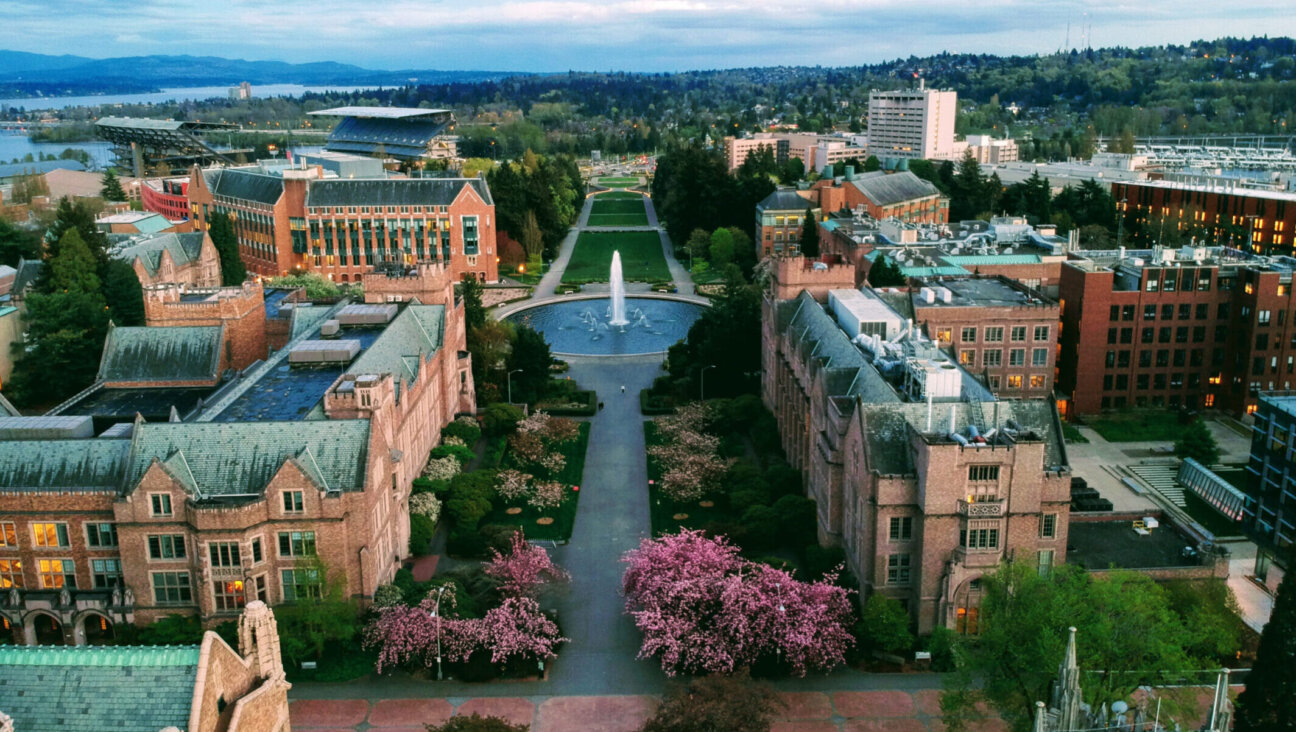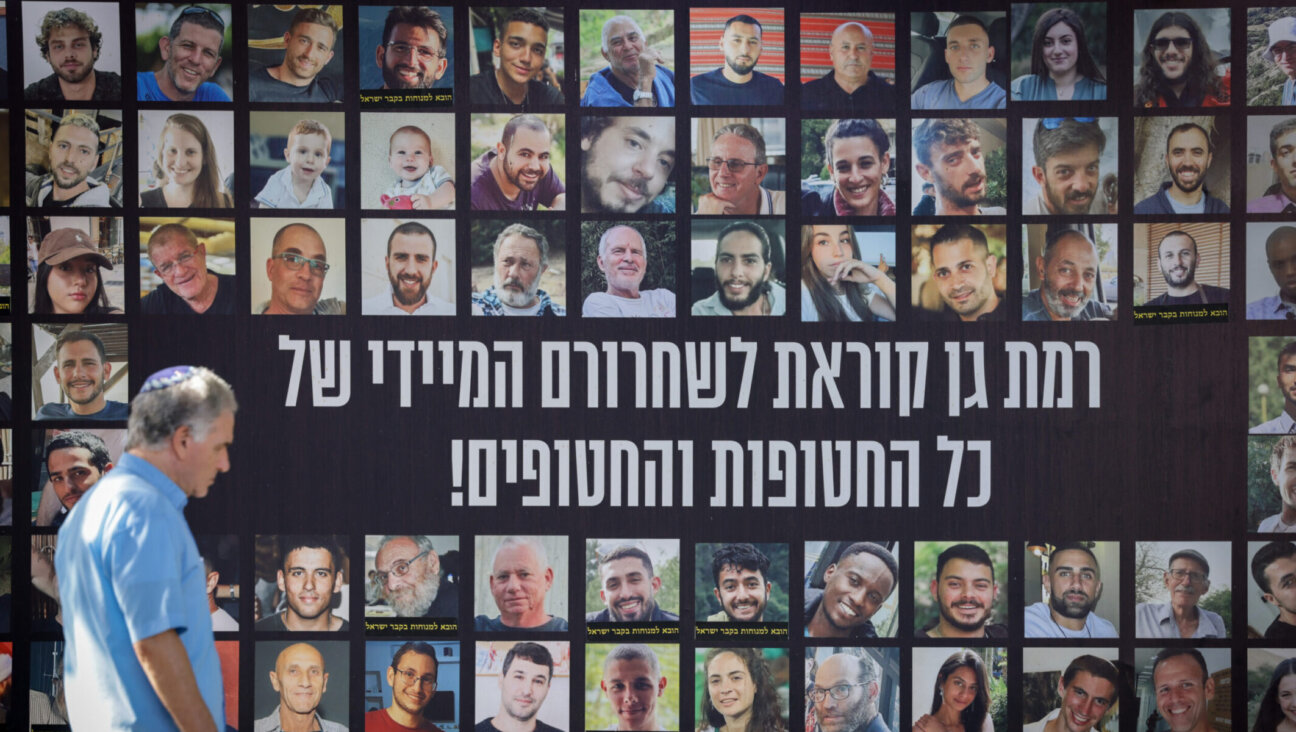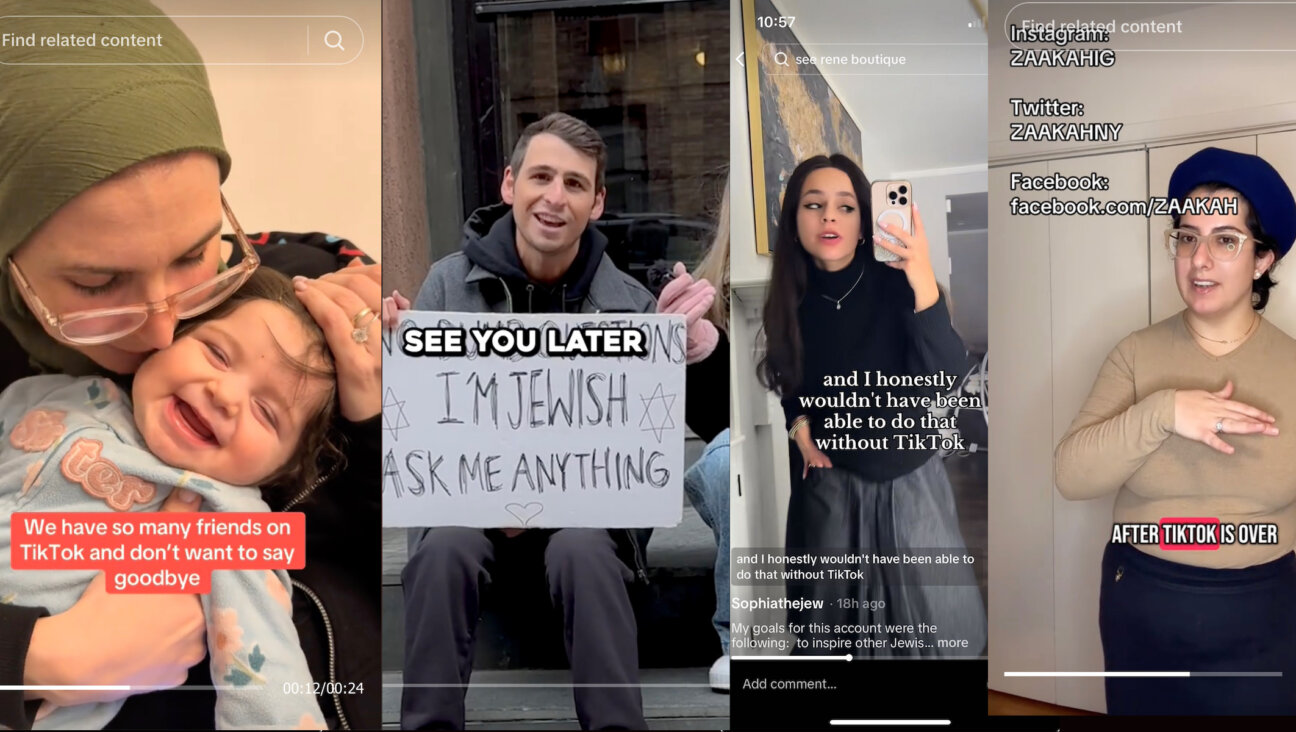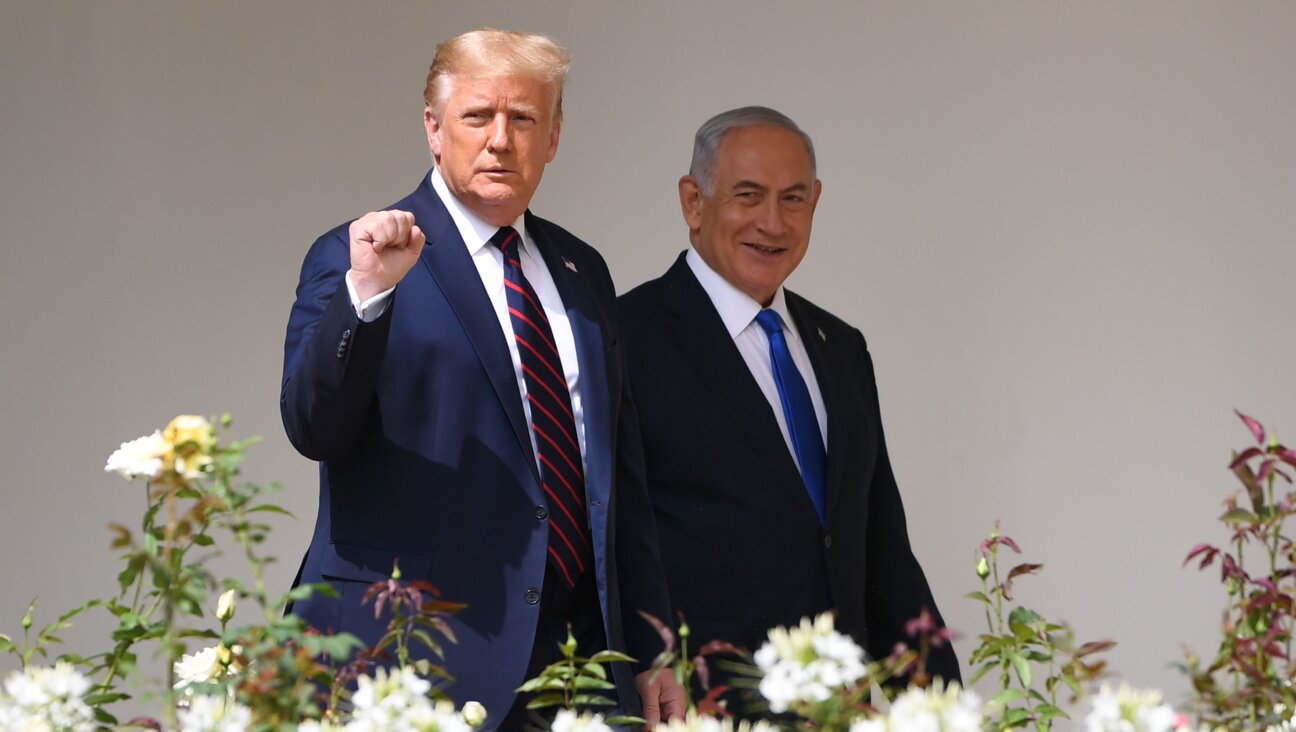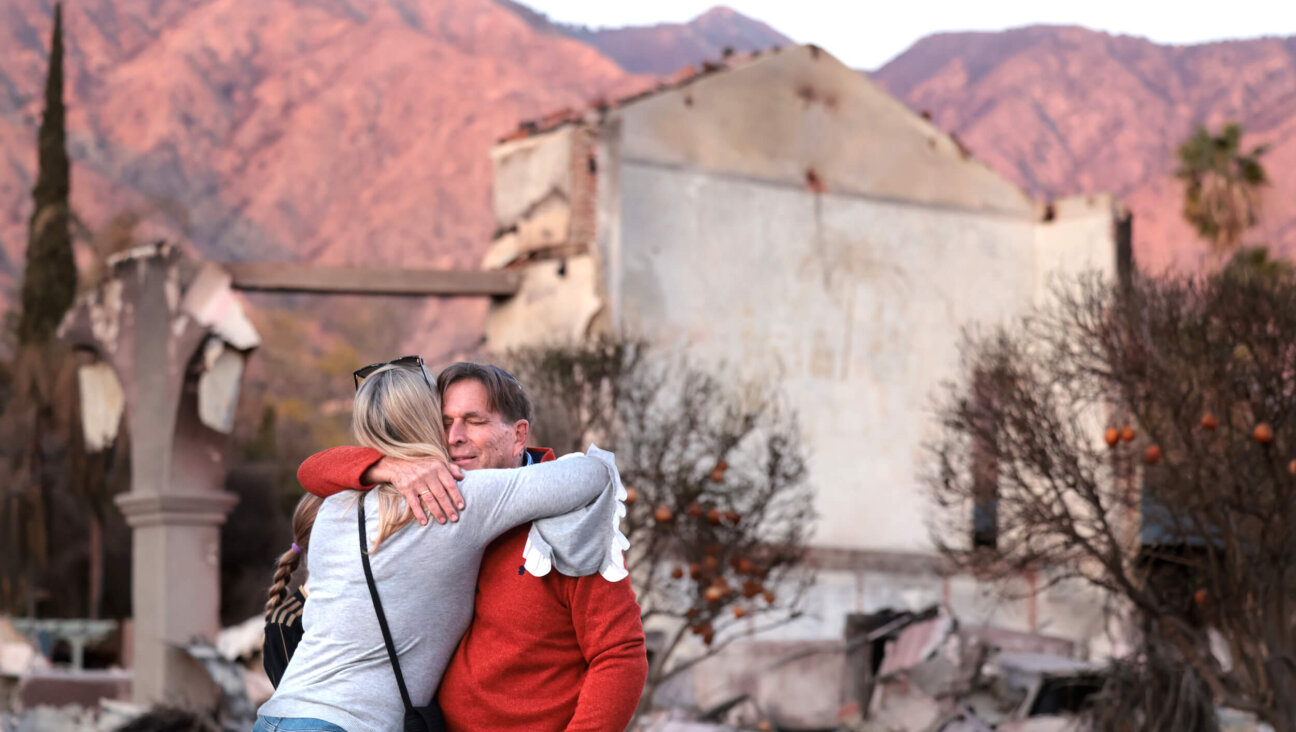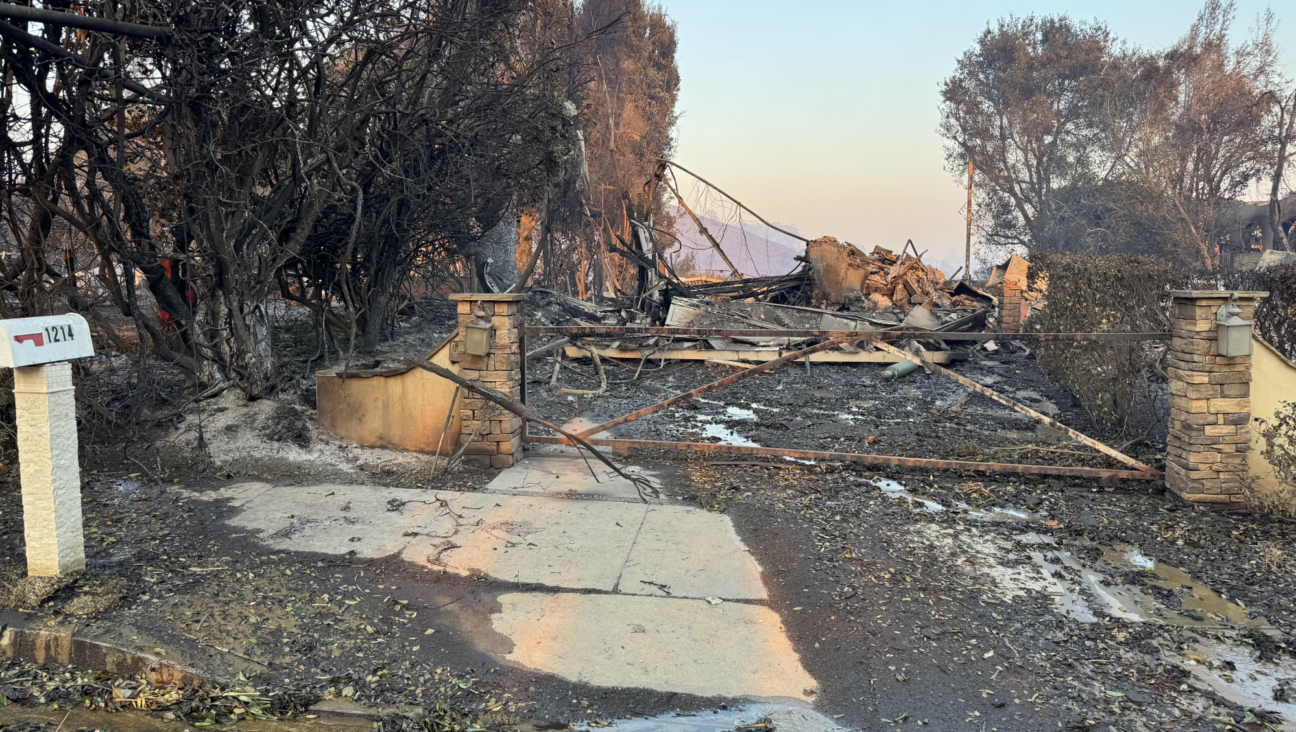Shai Davidai, outspoken Israeli Columbia professor, barred from campus
A Columbia spokesperson said Davidai’s access to campus had been temporarily limited, and the scope of the ban is unclear
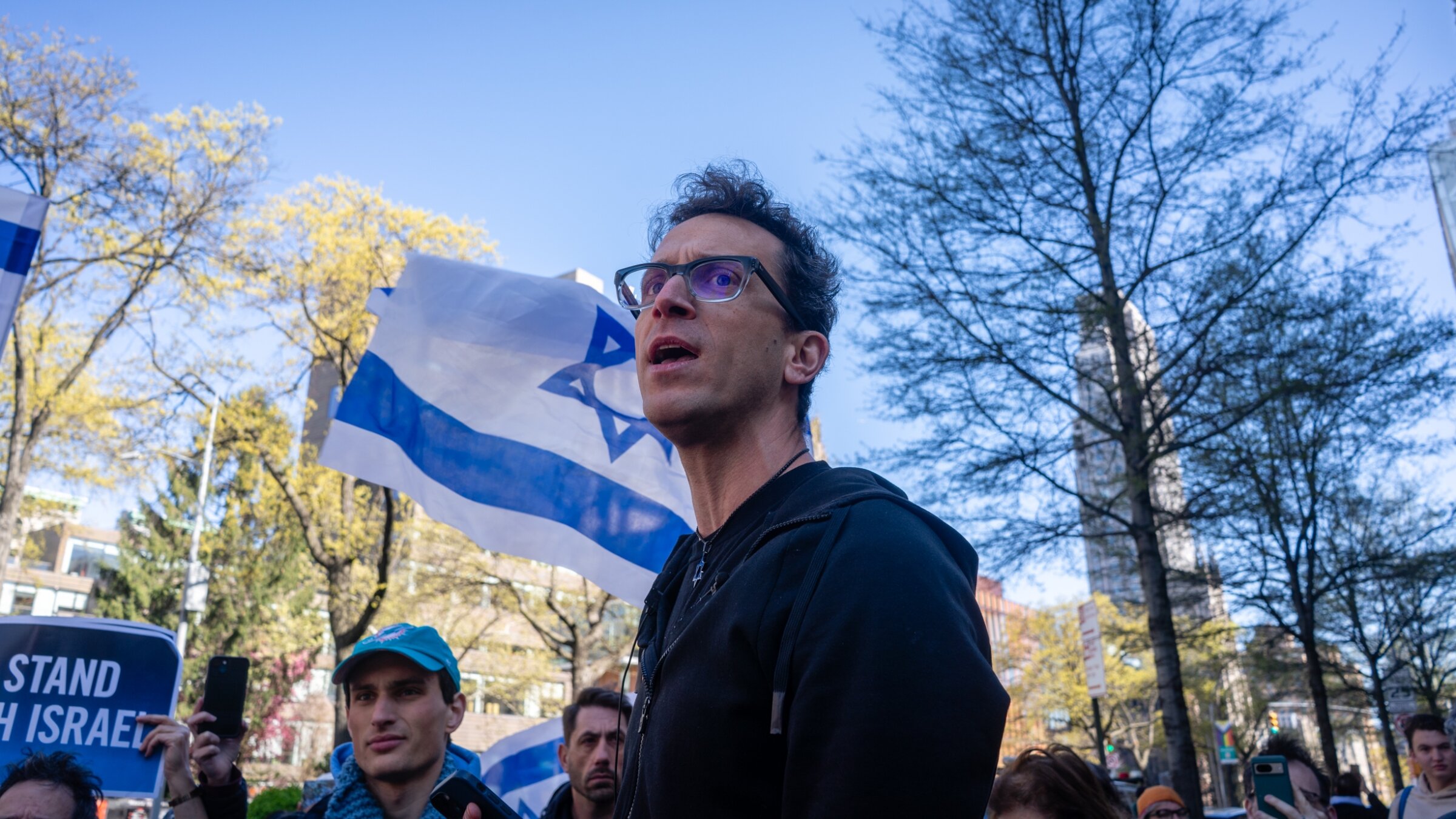
Israeli professor Shai Davidai outside of Columbia University, April 22, 2024. (Luke Tress)
(New York Jewish Week) — Shai Davidai, an Israeli assistant professor at Columbia University’s business school and outspoken pro-Israel activist, said he has been barred from the school’s campus again.
In a video posted to Instagram on Tuesday, Davidai said his lawyer had been informed that Davidai was barred from campus after he posted videos of himself confronting university officials about anti-Israel protests on Oct. 7, the one-year anniversary of Hamas’ attack.
“The university decided to not allow me to be on campus anymore, my job. Why? Because of Oct. 7th. Because I was not afraid to stand up to the hateful mob,” he said.
A Columbia spokesperson said Davidai’s access to campus had been temporarily limited, and the scope of the ban is unclear: Davidai teaches at the business school, which is not on Columbia’s main campus where the Oct. 7 confrontation took place.
Davidai is not teaching classes this semester, and the access restriction does not affect his compensation or employment status. The school also linked the decision to Davidai’s on-campus confrontations.
“Columbia has consistently and continually respected Assistant Professor Davidai’s right to free speech and to express his views. His freedom of speech has not been limited and is not being limited now,” the spokesperson said.
“Columbia, however, does not tolerate threats of intimidation, harassment, or other threatening behavior by its employees. Because Assistant Professor Davidai repeatedly harassed and intimidated University employees in violation of University policy, we have temporarily limited his access to campus while he undertakes appropriate training on our policies governing the behavior of our employees,” the statement said.
Davidai, who did not respond to a request for comment, has emerged as a vocal and controversial supporter of Jewish students on campus since shortly after Hamas’ Oct. 7, 2023 attack on Israel.
On Oct. 7 of this year, Davidai posted videos of himself confronting Columbia COO Cas Holloway, urging the administrator to take action against anti-Israel protesters.
“How did you allow this to happen on Oct. 7?” Davidai told Holloway. “You have to do your job and I will not let you rest if they won’t let us rest. You have Israeli students crying and you are not here.”
In another video, Davidai told Holloway, “You are indifferent and you know what? Hatred happens when people like you are indifferent.”
He also blamed Holloway for the protests. “This is because of you, this is not despite you,” Davidai said, referring to students chanting “intifada,” which he described as “a call against Jews and Israelis, suicide bombings.”
In the videos, Holloway largely refrains from responding, aside from saying, “I understand,” and “Thank you, Shai.”
In other videos Davidai posted to X, he confronted a Columbia public safety official as a Jewish student said they felt unsafe on campus. In one of the videos, Davidai sings the Israeli national anthem while a large pro-Palestinian protest marches around him. The protesters do not appear to engage with him, though in another video Davidai films himself ostensibly being obstructed by the protest.
Columbia’s policies for employees stipulate that “Respect for others is the central principle that governs interactions between people at Columbia University” and that staff must “act with civility.”
The policy states, “People have the right to disagree, even strongly disagree; however, there is also a responsibility to be civil and to maintain respect even while disagreeing.”
Oct. 7 saw dueling protests at Columbia to mark the anniversary. An anti-Israel protester was seen holding a sign that said “Long live the Al-Aqsa Flood,” Hamas’ name for the attack, with several of the terror group’s symbols. The activists also distributed mock newspapers that said “victory to the resistance” alongside an image of Palestinians breaking into Israel.
Pro-Israel students held a memorial service and set up an installation commemorating the hostages held by Hamas with giant milk cartons bearing the captives’ faces and names. Outside the campus gates, pro-Israel activists who were largely not students held their own demonstration.
Davidai had previously been blocked from entering part of Columbia’s campus in April, amid the school’s pro-Palestinian encampment, after he said he planned to enter the university’s main campus to hold a “peaceful sit in” among the tents. He rejected an alternate location offered by the administration as a “continuation of six months of gaslighting and degrading the Jewish community.”
Davidai gave a viral speech about antisemitism on campus shortly after the Oct. 7 attack and has often clashed with Columbia administrators, demanding they take action against student activists and faculty who, he says, have created a hostile and threatening atmosphere for Jewish and Israeli students. In April, referencing Holloway, he tweeted, “F— YOU CAS.”
The restrictions against Davidai came as tensions over Israel at Columbia are again in the spotlight. Last week, the most prominent pro-Palestinian coalition on campus walked back an apology it had issued for a student who said “Zionists don’t deserve to live.” The statement from Columbia University Apartheid Divest, an alliance of more than 100 student groups, also said “violence is the only path forward.”
Columbia was rocked by anti-Israel protests last year, peaking with the student encampment at the end of the spring semester, which launched a movement of similar encampments at schools across the United States.
The university called police onto campus after the protesters forcibly occupied an administrative building, resulting in dozens of arrests, most of which were dismissed, and causing widespread controversy. That April, In April, students held an unsanctioned event called “Resistance 101” that featured speakers from Samidoun, an anti-Israel activist group based in Canada that, this week, the United States and Canada sanctioned for its ties to a Palestinian terror group.
The turmoil has continued since then. Columbia’s president resigned in August, after three deans resigned under criticism for sending text messages widely condemned as antisemitic during a panel on antisemitism.
The university’s antisemitism task force reported in August that Jewish students faced “crushing” discrimination that “affected the entire university community.” A House congressional committee is investigating antisemitism at the university.
A message from our Publisher & CEO Rachel Fishman Feddersen

I hope you appreciated this article. Before you go, I’d like to ask you to please support the Forward’s award-winning, nonprofit journalism so that we can be prepared for whatever news 2025 brings.
At a time when other newsrooms are closing or cutting back, the Forward has removed its paywall and invested additional resources to report on the ground from Israel and around the U.S. on the impact of the war, rising antisemitism and polarized discourse.
Readers like you make it all possible. Support our work by becoming a Forward Member and connect with our journalism and your community.
— Rachel Fishman Feddersen, Publisher and CEO






